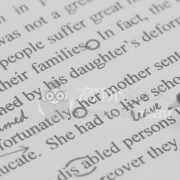代写英文论文:卫生
代写英文论文:卫生
从根本上讲,社会可以分为原始文化和文明文化。在这种背景下,原始社会是那些无法区分不可侵犯性和清洁的社会。在她看来,对于19世纪原始宗教来说,卫生可能是两件事之一,这使得它与世界上伟大的宗教隔绝(Douglas, 1984)。此外,达勒姆(2006)指出,在这种特定的背景下,神圣被认为是秩序的同义词。这对于一个积极的社会是至关重要的。道格拉斯(1984)指出没有绝对的污垢。污垢的概念存在于旁观者的眼中。有一个共同的概念,保持房屋清洁将预防疾病和保证社会赞赏。这基本上是说,人们希望摆脱恐惧。灰尘并不完全有害。观念不应该总是被理解为消极的,它可以是积极的努力来组织环境。污垢的概念根植于个人对污垢的感知。人们处理污垢的方式和确保清洁的努力泄露了个人性格(campkin&cox, 2007)。
代写英文论文:卫生
人们认为灰尘是需要清理的东西。然而,污垢的概念是基于主观的解释。人们发现,随着时间的推移,污垢的定义会发生变化,不同的文化和个人认知也会有所不同。例如,在16世纪,人们认为洗澡可能不健康。他们认为这会破坏身体的相对平衡。他们认为公共场所的脏东西不美观。他们没有考虑到这些灰尘会如何影响他们的健康。道格拉斯指出,在一个有序的社会中,脏东西的概念是一个物体如何不合适的问题。肮脏是与秩序不相容的东西(达勒姆2006)。肮脏本质上是对秩序的冒犯。Douglas(1984)解释说,人们可能不会被通过清洁来逃避疾病的焦虑所控制,而装饰人类的过程正积极地对环境进行重新排序。
代写英文论文:卫生
Fundamentally society can be divided into primitive and civilized cultures. In this context primitive societies are those that fail to distinguish between inviolability and being clean. In her opinion, for the 19th century primitive religions hygiene could be one of the two things, which blocked it from the great religions in the world (Douglas, 1984). Adding to this notion, Durham (2006) states that in this particular context, sacred is assumed to be synonymous with order. This can be crucial for a positive society. Douglas (1984) indicates that there is no such thing as absolute dirt. Notion of dirt exist in the eye of the beholder. There is a common conception that keeping premises clean will prevent diseases and warrant societal appreciation. This essentially states that people wish to be clean out of fear. Dirt is not completely deleterious. Notions should not be always construed as negative it could be positive effort to organize the environment.Idea of dirt is rooted in the individual perception regarding dirt. Manner in which people handle dirt and efforts undertaken to ensure cleanliness divulges about the individual personality (Campkin& Cox, 2007).
代写英文论文:卫生
People perceive dirt to be something that needs to be cleaned. Nevertheless the notion of dirt is considered based on subjective interpretation. This definition of dirt has been found to change over time, differs across cultures and individual perception. For instance, in the 16th century, people assumed that bathing could be unhealthy. They imagined that it would damage relative equilibrium of body. They considered dirt in public spaces to be aesthetically displeasing. They did not factor how this dirt could affect their health. Douglas states that in an ordered society, idea of something being dirty is a question of how the object is out of place. Dirt is something that is not cohesive with order (Durham 2006). Dirt is essentially and offense against order. Douglas (1984) explains that people might not be governed by anxiety to escape disease by cleaning and the process of decorating humans is positively re-ordering the environment.








